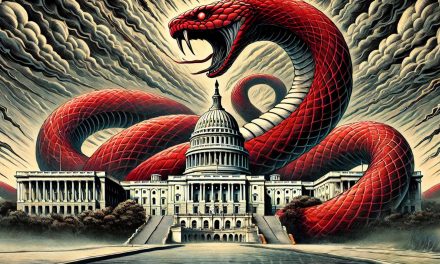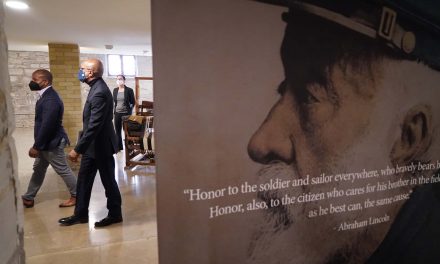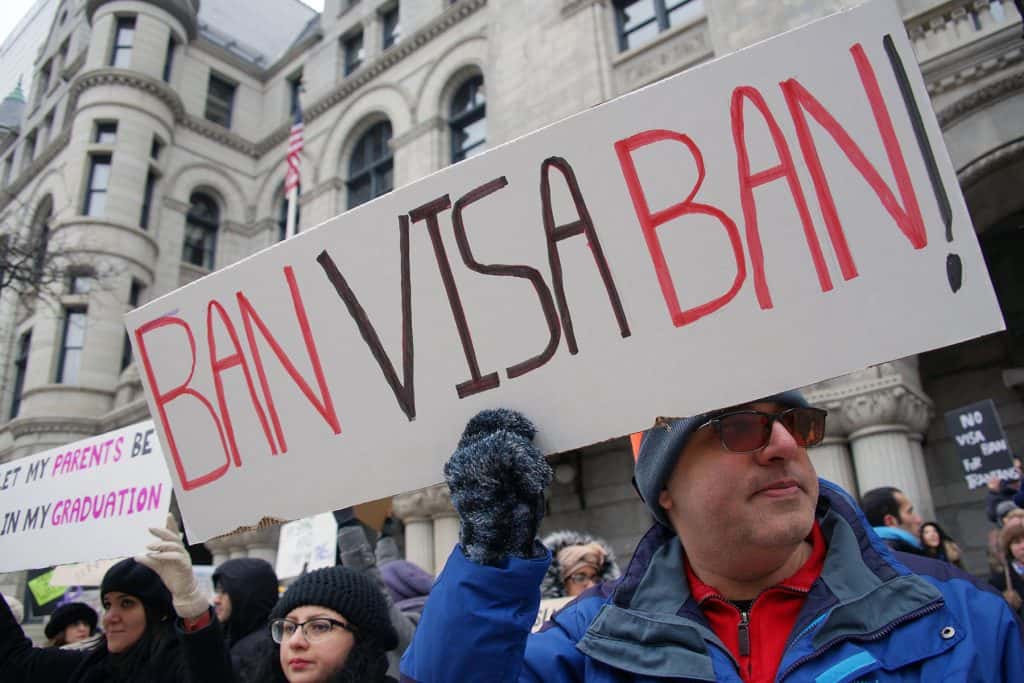
For three generations political scientists have tried to figure out exactly why Republicans have been so dead set against public schools.
One theory is that, like Donald Trump famously said, they “love the poorly educated.” Uninformed – or mal-informed: there is a difference between “poorly educated” and “less educated,” people are easier to manipulate than those who are well-educated.
Another theory is that the billionaires who took over the GOP in the 1980s simply hate the idea of paying taxes to support the education of the kids of people who fail to get rich on their own by “pulling themselves up by their own bootstraps.”
After all, when David Koch ran for Vice President on the Libertarian ticket in 1980, one of the key planks of his platform was to not only end all public schools but to also end any government requirement that children get educated at all. Child labor, anyone? Koch also wanted to end all child labor laws.
But the average Republican who is regularly voting for these people probably would not buy into either of these arguments. Most Republicans have kids in some generation of their families, do not want them working in steel mills, and appreciate good public schools being there for them.
So what is really going on here? Peroutka is not an outlier in the GOP. Public schools have been in the party’s crosshairs in a big way ever since Ronald Reagan installed William Bennett as his Education Secretary.
Bennett wanted to privatize public education — as does Trump’s former Education Secretary, billionaire Betsy DeVos — and is probably most famous for his statement that gives us a clue as to why this idea of ending public education is so persistent in the GOP.
“If you wanted to reduce crime,” Bennett said on the radio, “you could, if that were your sole purpose; you could abort every Black baby in this country, and your crime rate would go down.”
Could it be that it is all about keeping White children away from Bennett’s Black babies? Is simple racism animating the GOP’s antipathy toward public education? One clue is that the idea of ending public education in America goes back even farther than Bennett or Reagan.
When I was born, in 1951, Republicans loved public schools. Republican President Dwight Eisenhower led the charge to build brand new public schools all across the United States: I attended one as did perhaps a majority of my generation.
The conservative war on public education — now carried on exclusively by the GOP — began in earnest after the Supreme Court overturned their own 1896 Plessy v. Ferguson “separate but equal” decision in 1954 with Brown v. Board of Education, which mandated racial integration in our schools.
In 1957, President Eisenhower ordered the Little Rock, Arkansas, public schools desegregated. The “Little Rock Nine” — nine Black children trying to desegregate Little Rock Central High School — became nationally famous when Governor Orval Faubus prevented them from entering the school that fall, provoking Eisenhower to call up federal troops to escort the children to class.
Faubus called a referendum — an election — and the good citizens of Little Rock voted 19,470 to 7,561 to shut down their entire school system rather than comply with Eisenhower’s order. That, in turn, led back to the Supreme Court, which, in the fall of 1958, ruled unanimously in Cooper v. Aaron that desegregation was, in fact, now the law of the land for public education.
In response, Whites-only private schools and “academies” began springing up across the nation, many run by all-White churches. Jerry Falwell tried, in 1966, to open an all-White school; in 1980 he became Reagan’s main advisor on merging the White Supremacist faction of evangelical Christians — also triggered by Brown v. Board — into the GOP.
Thus, in 1958 the governor of Virginia closed all the public schools in racially mixed Warren County, Norfolk, and Charlottesville; Prince Edward County’s public schools remained closed for a full five years.
While that is the foundational history of what has become the GOP’s war on public education, for most of the past 40 years Republicans have merely claimed vague libertarian principles when they try to explain what they ironically call “school choice.”
It was not until Donald Trump gave them permission — and showed them how politically potent it could be — to unleash their inner racists that the GOP went public with overt White Supremacy as a core value for the party.
While Critical Race Theory (CRT) was a little-known 1993 analysis of structural racism pioneered by Kimberlé Crenshaw and Derrick Bell taught only in law school, rightwing troll Christopher Rufo popularized the term with an appearance on Tucker Carlson’s Fox “News” show.
From there, it echoed around the GOP for a few months before catching fire across rightwing hate radio, podcasts, and Fox. Pretty soon White Supremacist militia members were showing up at school board meetings threatening members that “we know where you live.”
Republicans anxious to stoke the fears of their White racist base began inveighing against teaching CRT in public schools — even though such a thing had never happened — and passing laws so loosely worded as to bar any meaningful teaching or classroom discussion of America’s racial history.
All-White private schools funded with taxpayer dollars have become a darling of Republicans. In most cases these schools do not need to flout the law by declaring their segregated status: Black, Asian, and Hispanic parents most often simply are not interested in enrolling their children in schools that proudly proclaim they will not allow a drop of “CRT” in their classrooms.
The issue of privatizing public schools came up in Arizona in 2018 with a statewide ballot initiative that would extend free school vouchers to every student in the state: it was defeated by voters by a 2:1 ratio. Writing for The Arizona Republic, columnist Laurie Roberts was unambiguous in her description of the state’s voters’ horror at the ballot initiative:
“Actually, they didn’t just reject it. They stoned the thing, then they tossed it into the street and ran over it. Then they backed up and ran over it again.”
Republicans in the heavily gerrymandered state, though, did not much care about the will of the voters. Appealing exclusively to their White racist base, they pushed what was essentially that same proposal through the GOP-controlled state legislature and it was signed into law three weeks ago by Governor Doug Doocey.
In giving every student in the state the ability to opt out of public education with a taxpayer-funded voucher, Doocey has established a new benchmark in the war against racially integrated public schools that will probably soon be met by other Republican-controlled states.
Republicans in both Texas and Florida are making noises that each wants to be next. In California, they are working to put a ballot initiative up that would destroy public education by offering vouchers to every parent in the state.
Which brings us back to Michael Peroutka, the Republican Party’s nominee for Attorney General in Maryland. What is the basis of his explicit, enthusiastic, open hatred of public schools?
A wealthy former debt-collection attorney, Peroutka was a member – and former Board of Directors member – of the White Supremacist and neo-Confederate League of the South, listed as a hate group by the Southern Poverty Law Center. As Cameroun Joseph wrote for Vice News in a profile of Peroutka:
“Peroutka gave a speech to the League during his 2004 presidential bid, in which he declared that he was ‘still angry’ that Maryland was blocked from seceding from the union at the beginning of the Civil War.
“He praised his son for calling the Confederate rebel flag the ‘American flag,’ and proudly joked that his daughter had refused to play the Battle Hymn of the Republic at school and was nicknamed ‘Beth Booth’ – a seeming reference to Lincoln assassin John Wilkes Booth, and talked about the beauty of visiting Confederate President Jefferson Davis’ grave.”
To finally answer the question, “What’s animating GOP hatred of public schools?” the answer appears clearer every day. Race, race, and race.
Ааrоn Mеllо
© Thom Hartmann, used with permission. Originally published on The Hartmann Report as Is the GOP Calling Public Schools “Communist” Just Code for Racism?
Subscribe to The Hartmann Report directly and read the latest views about U.S politics and other fascinating subjects seven days a week.















